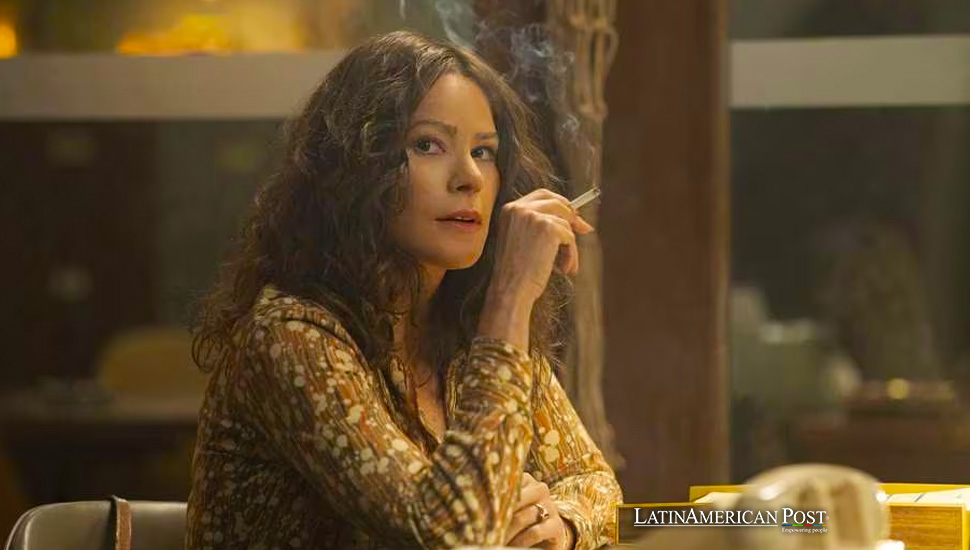The Real Story Behind Netflix’s ‘Griselda’: From Cartel Leader to Myth

Netflix’s ‘Griselda’ miniseries, starring Sofía Vergara, brings to life the notorious Griselda Blanco, a Colombian drug lord whose criminal empire rivaled even Pablo Escobar’s. But who was the real Griselda Blanco, and what was her journey from a cartel leader to a near-mythical figure?
Griselda Blanco: A Narcotics Queen’s Cinematic Saga
The Netflix miniseries Griselda,’ released in January 2024, portrays the life of Griselda Blanco, one of the most formidable figures in the world of narcotics trafficking. Played by Sofía Vergara, the series offers a dramatized glimpse into Blanco’s life, from her humble beginnings to her reign as a drug lord and, eventually, her violent end.
Griselda Blanco, born in 1943 in Cartagena, Colombia, had a tumultuous childhood marked by poverty and abuse. Seeking an escape from her dire circumstances, Blanco turned to crime, initially engaging in petty theft before escalating to more severe offenses. Her entry into the drug trade in the 1970s marked the beginning of her rise to infamy.
Blanco moved to New York, where she quickly established a sprawling cocaine distribution network. Her business acumen was formidable, but her ruthlessness set her apart. Blanco’s methods were brutal and efficient, and she played a crucial role in turning Miami into a drug trafficking hub, earning the city the nickname “Cocaine Capital of the World.”
The Black Widow’s Reign: Blanco’s Notorious 1980s
Her notoriety skyrocketed in the 1980s when the drug war was at its peak. Blanco’s operations were said to be bringing in millions of dollars per month. Known as the “Black Widow,” she was feared for her propensity to eliminate husbands, lovers, and rivals. Blanco’s trademark methods included drive-by motorcycle shootings, earning her another nickname, “La Madrina” (The Godmother).
In 1985, Blanco’s empire faced a significant setback when she was arrested and subsequently sentenced to more than a decade in prison. Remarkably, reports suggested that she continued to control her drug empire from behind bars. Following her release in 2004, Blanco was deported to Colombia, where she reportedly retired from her life of crime.
Blanco’s story concluded as dramatically as it had unfolded. On September 3, 2012, she was assassinated in Medellin, gunned down by a motorcyclist in a manner reminiscent of the killings she once ordered.
The portrayal of Griselda Blanco in Netflix’s ‘Griselda’ has brought renewed attention to her life and crimes. The series explores her complex character – a ruthless criminal who was also a mother and a survivor of a harsh upbringing. It delves into the dichotomies of her life, raising questions about the nature of power, gender dynamics in the criminal world, and the societal factors that foster the rise of such figures.
A Dramatic End: The Assassination in Medellin
Blanco’s legacy is a topic of much debate. While some view her as a symbol of the extreme violence of the drug trade, others see her as a figure who challenges gender norms in a male-dominated field. Her story also reflects the broader social and economic conditions in Colombia that contributed to the rise of the drug trade.
The series has sparked discussions about the ethics of dramatizing the lives of notorious criminals. It raises questions about the balance between entertainment, historical accuracy, and the potential glorification of criminality. The fascination with Blanco’s life underscores the public’s enduring interest in crime stories, particularly those involving complex and influential female figures.
Also read: Alasita Festival: Bolivia’s Ancient Tradition Meets Modern Aspirations
In sum, Griselda Blanco’s life story, as portrayed in Netflix’s ‘Griselda,’ offers more than just a tale of crime and punishment. It is a deep dive into the human psyche, exploring themes of ambition, morality, and survival. Her journey from the slums of Cartagena to becoming a feared drug lord is a testament to her resilience and strategic acumen, even as it is a stark reminder of the destructive path of illegal narcotics. As the world continues to grapple with the consequences of the drug trade, Blanco’s story remains a poignant and cautionary tale.




